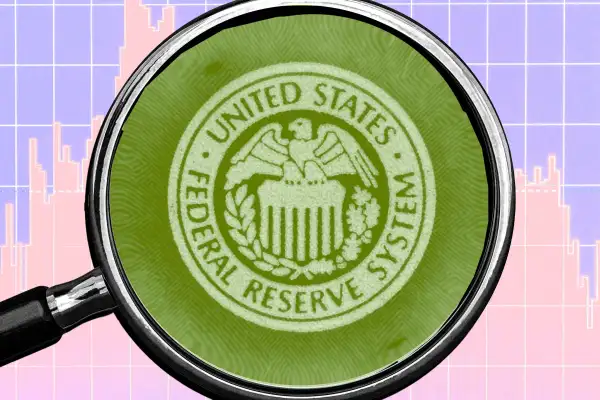The Fed Is Holding Interest Rates Steady, but Cuts Are Coming Soon

The Federal Reserve has decided to hold interest rates steady, as broadly expected, but the consensus holds that rate cuts are coming in September.
At the conclusion of the Federal Open Market Committee, aka FOMC, meetings Wednesday, the Fed confirmed what investors and analysts almost unanimously anticipated: Interest rates are staying put at the current 5.25% to 5.5% range.
While inflation has showed signs of moving toward the Fed's preferred rate of 2%, the committee wrote in a statement Wednesday that it would like to see "further progress" toward that objective before lowering rates.
"Inflation has eased notably over the past two years, but remains somewhat above our longer-running goal," Fed Chair Jerome Powell said at a press conference Wednesday. "We're not quite at that point yet."
In a bid to tame rapidly rising prices, the Fed began hiking interest rates in March 2022, when rates were at historically low levels. The central banking system then raised rates 11 times, bringing them to a 20-year high. Since August 2023, interest rates have held steady at the current range.
For consumers fed up with the elevated cost of borrowing, the Fed’s decision Wednesday comes as bad news. According to Morning Consult, 68% of Americans say interest rates are too high. Many of them are cutting back spending on essential items and delaying major purchases like cars and homes as a result.
However, the Fed is wary of cutting interest rates too soon, as it did the last time the U.S. economy dealt with soaring inflation. Back in the ‘70s and ‘80s, the Fed hiked and then cut rates quickly, and inflation came back with a vengeance, soaring as high as 13.5%.
Some are beginning to worry the Fed may be over-correcting as a result.
"Continuing to keep rates elevated could be harmful for consumers and the economy as a whole, which is already showing signs of cooling," Sofia Baig, economist at Morning Consult, said in a statement shared with Money.
When will the Fed cut interest rates?
At a press conference Wednesday, Powell signaled that an interest rate cut is coming "as soon as the next meeting" if inflation continues cooling and the labor market remains stable.
The central bankers next gather for the FOMC in September. Analysts have been predicting that a rate cut at the September meeting is a given.
According to CME FedWatch, markets are already pricing in a 100% probability of a September rate cut — the main question is by how much. Investors are mostly expecting a 0.25 percentage point reduction, though about 10% of them are pricing in a 0.5 percentage point cut.
The Fed will be closely eyeing inflation and jobs data between now and September to determine whether to cut and by how much. If inflation continues to cool while the job market holds steady, the cut is more likely to be by a quarter percentage point; though if the job market falters in the meantime and unemployment rises, the cut could deepen to a half percentage point.
What does the Fed’s decision mean for your wallet?
The Fed’s decision to hold rates steady means consumers must weather high interest rates for at least a little longer.
For folks who are primarily building their nest egg, that could be a good thing. Interest rates remaining steady mean larger yields on certificates of deposit, high-yield savings accounts and other similar accounts. On the other hand, borrowers will continue to face record-high mortgage and credit card payments. Elevated interest rates — which translate into mortgage rates near 7% — have ground the housing market to a near halt. Homebuyers looking for some relief from steep mortgage rates likely won't find any until the fall.
Benchmark interest rates affect all kinds of other areas of household finances, too, including the annual percentage rates (APRs) on home-equity loans, personal loans, student loans and more.
When interest rates are reduced, consumers are likely to first see the effects on their savings accounts and variable-interest debt payments such as home-equity lines of credit (HELOC) or credit cards.
Lower interest rates also have implications for the stock market. According to the financial firm Morningstar, the two are closely related. Generally speaking, when interest rates are high, stocks are seen as riskier, and investors tend to allocate more of their portfolios into safer options such as bonds. The opposite also tends to be true: When interest rates fall — or are expected to fall — investors may move money back into stocks.
For what it's worth, the stock market has had a particularly strong performance on Wednesday, with the Dow, S&P and Nasdaq indexes up more than 1%, 2% and 3%, respectively.
As the stock market adjusts to potentially lower rates, analysts at U.S. Bank had this advice for investors: “Be prepared for potential stock price fluctuations in the near term.”
More from Money:
Everything You Need to Know About Student Loan Interest Rates
Americans Think Inflation Will Get Worse After the Election. Should We Be Worried?
'Don't Panic': 5 Tips to Help Homebuyers Cope With 7% Mortgage Rates





